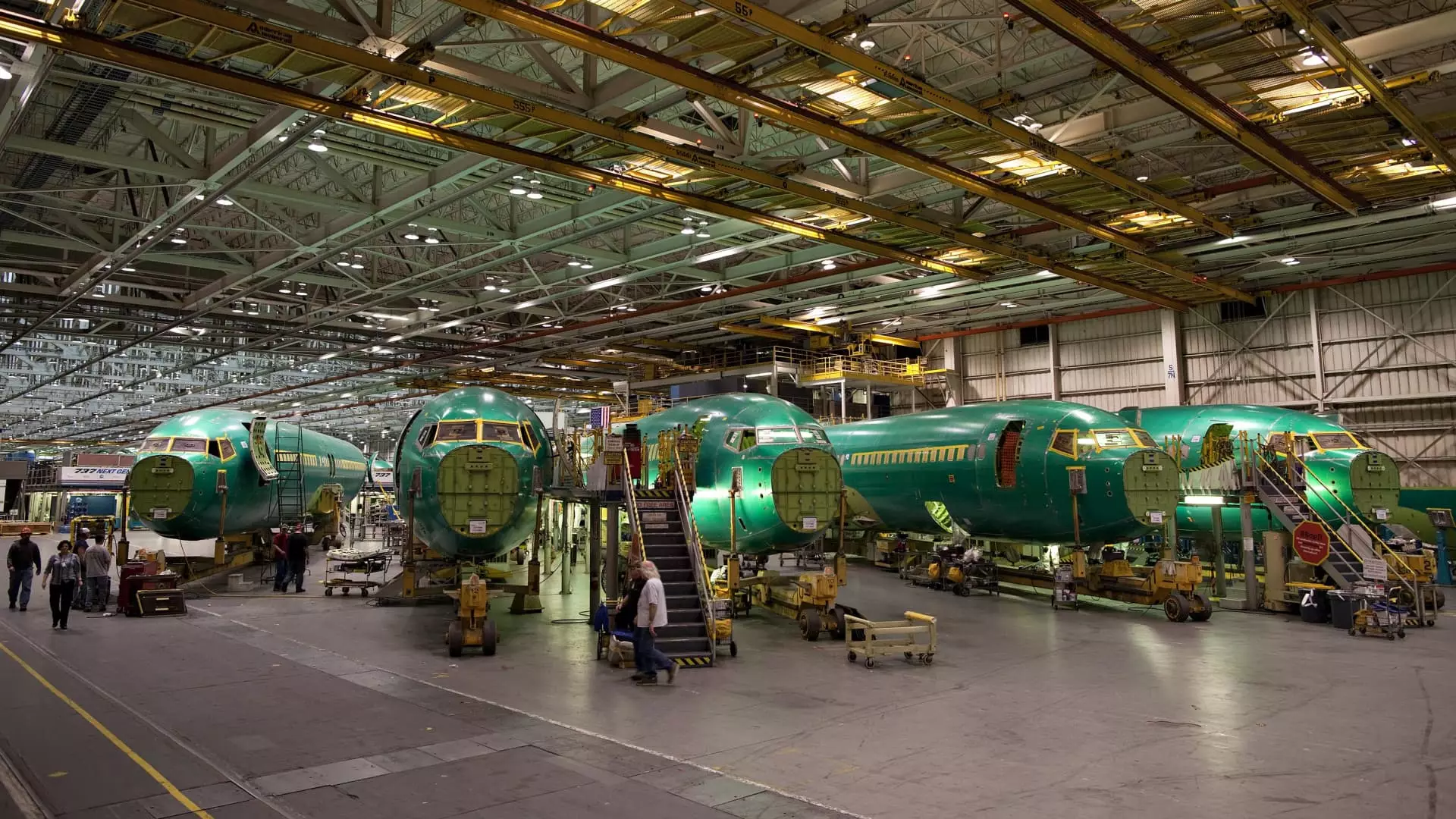Boeing recently announced its decision to acquire Spirit AeroSystems, a struggling fuselage maker, in an all-stock deal aimed at enhancing safety and quality control within the aerospace industry. The deal, valued at $8.3 billion, will see Boeing paying $37.25 a share in Boeing stock for Spirit, thus giving the aerospace company an equity value of $4.7 billion.
The decision to acquire Spirit AeroSystems comes in light of the recent crisis faced by Boeing, especially after a fuselage panel blew out midair from a nearly new Boeing 737 Max 9 on an Alaska Airlines flight. This incident sparked concerns over Boeing’s safety and quality control measures, prompting the company to take significant actions to address these issues. Spirit AeroSystems is responsible for manufacturing fuselages for Boeing’s 737 and other parts, including sections of Boeing’s 787 Dreamliners.
Boeing CEO Dave Calhoun emphasized the importance of this acquisition in aligning the production systems and workforces of Boeing and Spirit AeroSystems. He stated that bringing Spirit in-house will strengthen quality and demonstrate Boeing’s commitment to being a reliable company in the aerospace industry. Calhoun expects the deal to be finalized by mid-2025, subject to approval by regulators, Spirit shareholders, and the sale of Spirit’s operations dedicated to Airbus planes.
The acquisition deal not only showcases Boeing’s dedication to improving safety and quality but also has financial implications for both companies. Boeing’s CFO revealed that the company would burn around $8 billion in the first half of 2024, reflecting the financial challenges faced by the aerospace giant. Additionally, Boeing’s shares have declined by more than 30% this year, indicating the need for strategic decisions such as acquiring Spirit AeroSystems to enhance its market position.
In a bid to enhance quality control, Boeing has adopted measures such as accepting only defect-free fuselages to prevent errors and additional manufacturing steps out of sequence. This proactive approach aims to reduce the chances of production issues and improve overall safety standards. The Federal Aviation Administration has also emphasized the importance of ensuring Boeing’s production lines meet the required standards before expanding production capacity.
The recent crisis involving the door plug blowout on the Alaska flight has not only impacted Boeing’s deliveries to airlines but has also led to financial setbacks for both Boeing and Spirit AeroSystems. This incident, along with other production problems such as misdrilled holes and misconnected fuselage panels, has raised concerns over Boeing’s safety record and operational efficiency. Lawmakers have criticized Boeing’s safety measures, highlighting the need for consistent improvement in the wake of past incidents, including the two deadly Max crashes.
Boeing’s acquisition of Spirit AeroSystems represents a significant step towards enhancing safety, quality control, and operational efficiency within the aerospace industry. By bringing Spirit in-house, Boeing aims to streamline its production processes and address the challenges faced in recent years. This strategic decision not only reinforces Boeing’s commitment to being a reputable player in the aerospace sector but also signals a new chapter in the company’s efforts to regain trust and confidence among stakeholders.

